GoDaddy vs Rackspace
August 28, 2023 | Author: Michael Stromann
10
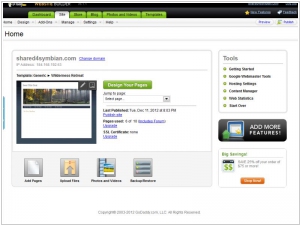
Easily create a professional website with hundreds of customizable designs, tailored to your business. We understand that you don’t always have time to work on your website during “business hours.” That’s why our award-winning support staff is here 24/7/365. If inspiration strikes at 2am on a Tuesday, one of our friendly, knowledgeable web pros will be here to help you make the most of it.
7
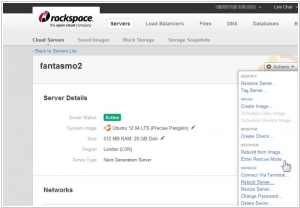
Rackspace Cloud offers four alternative hosting products: Cloud Servers for on-demand computing power; Cloud Sites for robust web hosting; Cloud Load Balancers for easy, on-demand load balancing and high availability; and Cloud Files for elastic online file storage and CDN.Rackspace Cloud hosting customers never need to worry about buying new hardware to meet increasing traffic demands or huge traffic spikes.
GoDaddy and Rackspace are distinct web hosting and cloud service providers, each offering different solutions to meet the needs of businesses and individuals. GoDaddy is widely recognized for its domain registration services, website hosting, and website-building tools, making it popular among individuals and small businesses looking for a user-friendly platform to establish an online presence. Rackspace, on the other hand, specializes in managed cloud services, offering a range of hosting solutions including public cloud, private cloud, and hybrid cloud environments. Rackspace focuses on providing enterprise-level cloud infrastructure and managed services, making it suitable for businesses seeking more advanced and tailored cloud solutions.
See also: Top 10 Public Cloud Platforms
See also: Top 10 Public Cloud Platforms
GoDaddy vs Rackspace in our news:
2020. GoDaddy acquired social content startup Over

GoDaddy has recently completed the acquisition of Over, a startup known for its app that assists businesses in creating compelling photos and videos for social media. Over offers a wide range of customizable templates and layouts, enabling users to swiftly and easily generate visually appealing content. With over 1 million active users and more than 220,000 projects created daily, Over has gained significant traction in the market. This acquisition aligns with GoDaddy's strategy of enhancing its website-building tools, which were relaunched as Websites+Marketing, and includes additional features such as email marketing, search engine optimization, and expanding online presence on platforms like Facebook and Yelp.
2018. Rackspace acquired Salesforce specialist RelationEdge
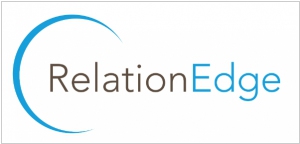
Rackspace has completed the acquisition of RelationEdge, a recognized partner specializing in Salesforce implementation. While Rackspace has established itself as a prominent provider of hosting and managed cloud services, the company is determined to broaden its portfolio and incorporate managed services for SaaS applications. This strategic move follows Rackspace's previous acquisition of TriCore, a company operating in the enterprise application management sector, signaling the company's commitment to expanding its capabilities in this domain. Through the acquisition of RelationEdge, Rackspace aims to further enhance its offerings and strengthen its position in the market.
2018. GoDaddy site builder integrates with Google My Business

Website hosting and small business marketing firm GoDaddy has partnered with Google to streamline the process of setting up and verifying a Google My Business (GMB) profile. Through an integration with their GoCentral website builder, GoDaddy now offers automated GMB registration and submission. This integration enables swift transfer of business data from the website to GMB, significantly reducing the verification time from weeks to days. The GMB integration is available with the Business Plus and Online Store hosting plans. It's important to note that claiming and populating a GMB profile directly on Google remains free of charge. Furthermore, GoDaddy provides comprehensive reporting on GMB-driven traffic and related actions, including profile/listings views, calls, directions requests, and website visits. Notably, it is interesting that Google's own service, Google Sites, has not yet been integrated with GMB.
2017. GoDaddy launches Pro managed WordPress
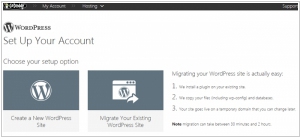
GoDaddy, the leading cloud platform for small businesses, has introduced Pro Managed WordPress, a specialized service tailored for WordPress web professionals. Pro Managed WordPress combines high-performance and reliable hosting with comprehensive security features and essential tools that enable efficient management of multiple clients and websites. This all-in-one solution for WordPress professionals also includes Pro Advanced Care, a dedicated 24/7 customer support service specifically designed for WordPress users. With the launch of Pro Managed WordPress, GoDaddy builds upon its three-year history of providing WordPress hosting and strengthens its position as the world's largest WordPress host, serving millions of sites. Throughout the development process, GoDaddy has collaborated closely with its GoDaddy Pro Program community, a vibrant community of over two hundred thousand web professionals.
2017. Rackspace acquires multi-platform hybrid IT management solution Datapipe

Rackspace has announced its acquisition of Datapipe, a major competitor in the managed public and private cloud services industry. While Datapipe has achieved significant success with enterprise and government clients, Rackspace has traditionally focused on the mid-market segment. Notably, the two companies have not consistently competed for the same deals, and their product portfolios differ substantially. Rackspace acknowledges that it could have attained similar technical capabilities through multiple smaller acquisitions, but this approach would have been more time-consuming and may not have granted Rackspace access to Datapipe's current customer base. Among Datapipe's customers are numerous large public-sector organizations, including the U.S. departments of defense, energy, and justice, as well as the U.K.'s cabinet office, ministry of justice, and department of transportation.
2017. GoDaddy launched business phone system SmartLine

Domain and hosting provider GoDaddy is expanding its services to include voice and telephone capabilities through a new app called SmartLine. This app aims to address a common requirement for small businesses—using their smartphones for both personal and work calls while preserving privacy. SmartLine enables users to create a secondary number that seamlessly connects to their iOS or Android devices. Notably, the mobile app allows users to fully configure SmartLine without the need to visit a website. Additional features include the ability to establish business hours, ensuring that calls outside of those hours are directed to voicemail, as well as the option to receive voicemail transcriptions. GoDaddy intends to differentiate itself by introducing further functionalities, including vanity numbers, toll-free numbers, and the ability to share a single phone number among multiple employees' cell phones. The unlimited calling and texting plan for SmartLine is priced at $9.99 per month.
2017. GoDaddy kills off its AWS-style cloud services
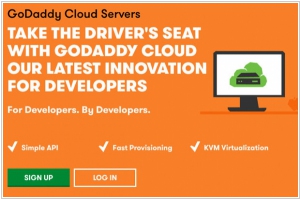
Web hosting and domain registration company GoDaddy is undergoing strategic changes to restructure its business. As part of this, it has reached an agreement to sell its European PlusServer business to BC Partners, a private equity firm based in London, for a total of $456 million. Furthermore, GoDaddy has made the decision to discontinue its Cloud Servers service, which was introduced just last year as a platform akin to AWS, facilitating the development, testing, and scalability of cloud solutions on GoDaddy's infrastructure. The Cloud Servers business was initially launched in March 2016, aiming to capitalize on the rising demand for cloud services and attract customers who were exploring or initiating the transition to cloud-based applications and services, prior to embracing larger platforms like AWS, Google, and Microsoft. With these changes, GoDaddy will now shift its focus towards competition with alternatives such as Wix, Jimdo, and others.
2016. Rackspace added cloud optimization platform to its private cloud
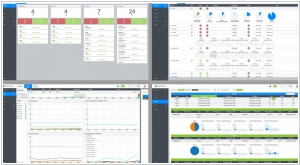
In a collaboration with AppFormix, Rackspace has introduced cloud monitoring and performance optimization tools to its private OpenStack cloud. This partnership grants Rackspace customers the ability to utilize AppFormix's real-time monitoring, analytics, and optimization tools. Rackspace's engineers will also leverage these tools to efficiently manage the cloud services for their customers. This marks a somewhat atypical move for Rackspace, as the company typically develops its own tools for managing the technical aspects of its cloud business. Notably, Rackspace played a pivotal role as a founding member of the OpenStack project, alongside NASA.
2014. Rackspace will sell and manage Google Apps
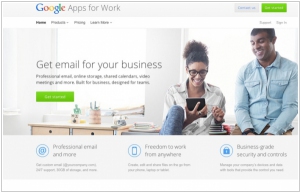
Cloud provider Rackspace has expanded its offerings to include the sale and support of Google Apps for Work to business customers, alongside its existing reselling and support of hosted Exchange and Sharepoint. Google Apps for Work, available directly, starts at $5 per user per month with 30 GB of online storage, while an unlimited storage version costs $10 per user per month. Rackspace will charge $10 per user per month for the basic package and $15 per month for unlimited storage. The additional $5 provides access to Rackspace's renowned "fanatical support," encompassing assistance with provisioning, security configuration, device management, migration issues, and account management. By offering Google Apps for Work, Rackspace aims to cater to the diverse needs of its business customers and provide comprehensive support for their collaboration and productivity tools.
2014. Rackspace guarantees 99.99% uptime of private cloud
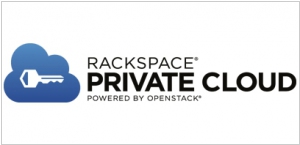
Rackspace is expressing great confidence in the latest release of its private cloud software, built on the OpenStack open-source framework for cloud computing. The company is even offering a guarantee of success for enterprise workload production. Rackspace initially introduced its private cloud in the summer of 2013 and has now enhanced its offering with several notable features. These include a 99.99 percent uptime guarantee for the OpenStack API, increased scalability capable of supporting hundreds of nodes, and DevOps automation services for efficient application lifecycle management. While facing tough competition from industry giants like Amazon Web Services, Google Compute Cloud, and Microsoft Azure, which can provide more competitive pricing, Rackspace aims to leverage the momentum it has built through its private cloud solutions.


